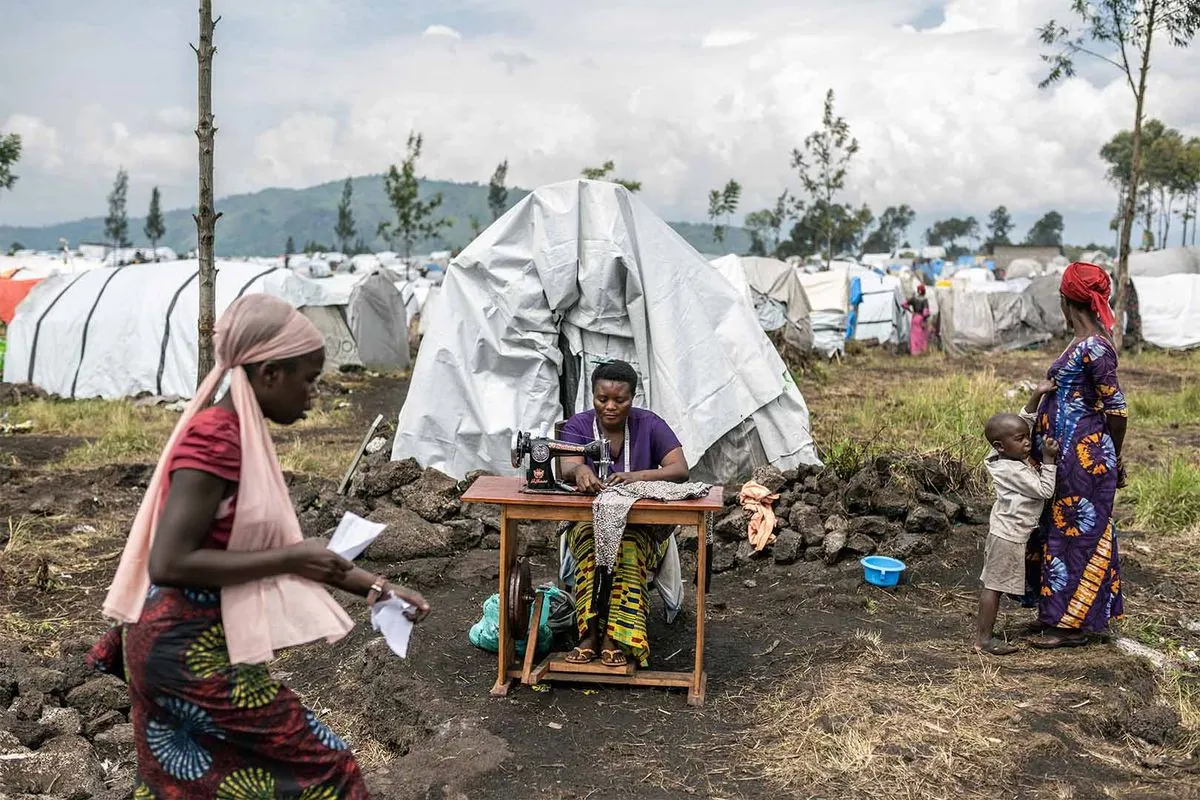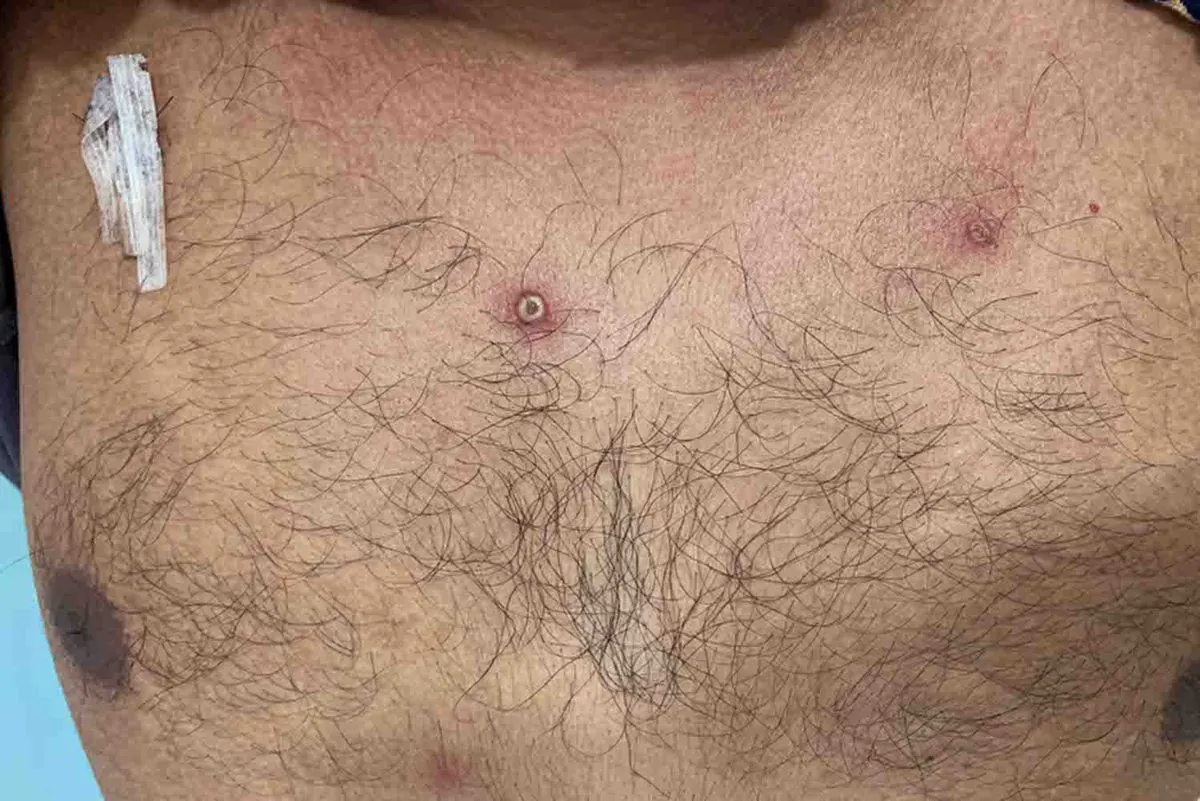DRC Displacement Camp Grapples with Mpox Outbreak Amid Limited Resources
In a Congolese displacement camp, residents face a mpox outbreak with traditional remedies and limited information. WHO declares global health emergency as cases rise in DRC and neighboring countries.

In a displacement camp near Goma, Democratic Republic of Congo (DRC), residents are confronting a mpox outbreak with limited resources and information. The situation highlights the challenges faced by vulnerable populations in the epicenter of a disease that has recently been declared a global public health emergency by the World Health Organization.
Justine Munguiko, a 24-year-old mother in the Kanyarutshinya camp, exemplifies the struggle many face. Unable to recall the name of the disease, she describes her baby Fidele's painful sores, similar to those affecting other children in the camp. In the absence of medical interventions, mothers like Munguiko have turned to traditional remedies.
"This disease of skin lesions, comes from I don't know where... We've been told it comes after eating bushmeat, but neither I nor my child have eaten bushmeat,"
The mothers' approach involves washing affected children with boiled salty water and applying leaves from the Kitamatama plant, a common method for treating fevers and rashes in the region. This reliance on traditional treatments underscores the urgent need for improved healthcare access and education in vulnerable communities.
Since January 2023, the DRC has reported approximately 27,000 mpox cases and over 1,100 deaths, primarily among children. The virus has also spread to neighboring countries, raising concerns about regional containment efforts.

Health organizations are working to bridge the information gap. At Kanyarutshinya camp, aid organization Medair conducted an informational session, distributing leaflets with visual guides on preventing mpox transmission. Bizimungu Habimana, a 46-year-old camp resident, expressed relief upon learning that the disease is treatable, highlighting the impact of such educational efforts.
Ebere Okereke, associate fellow at Chatham House's Global Health Programme, emphasizes the critical need for effective communication: "We need to get the right information out to the people who are immediately at risk."
The mpox outbreak in DRC underscores broader issues in global health research and funding. Helen Rees, co-chair of South Africa's mpox incident management team, points out the lack of comprehensive understanding about mpox transmission and asymptomatic cases, calling for increased research funding in African countries.
As the international community grapples with vaccine shortages, the situation in DRC's displacement camps serves as a stark reminder of the disparities in global health responses. The outbreak, which began over 19 months ago, continues to challenge local and international health authorities, highlighting the need for sustained attention and resources to protect the most vulnerable populations.


































